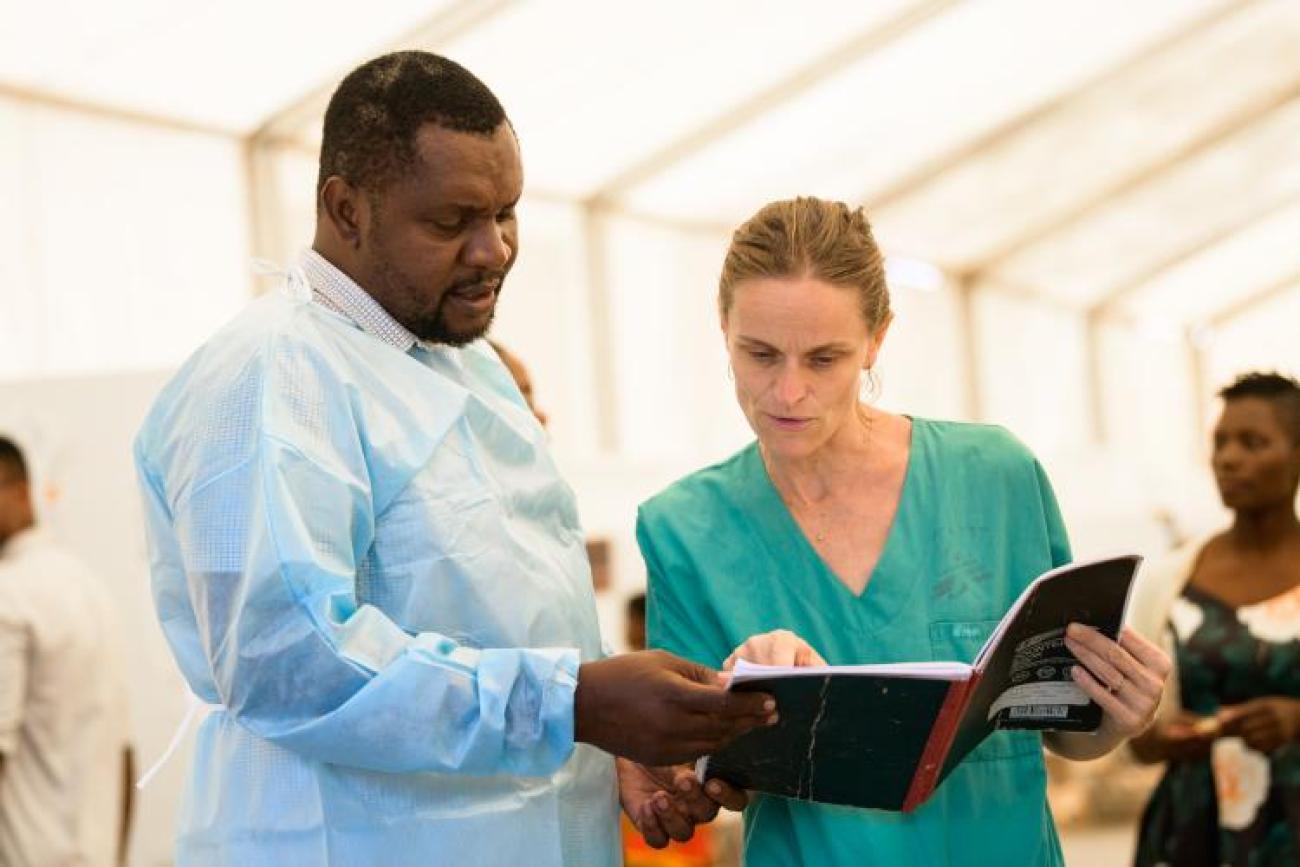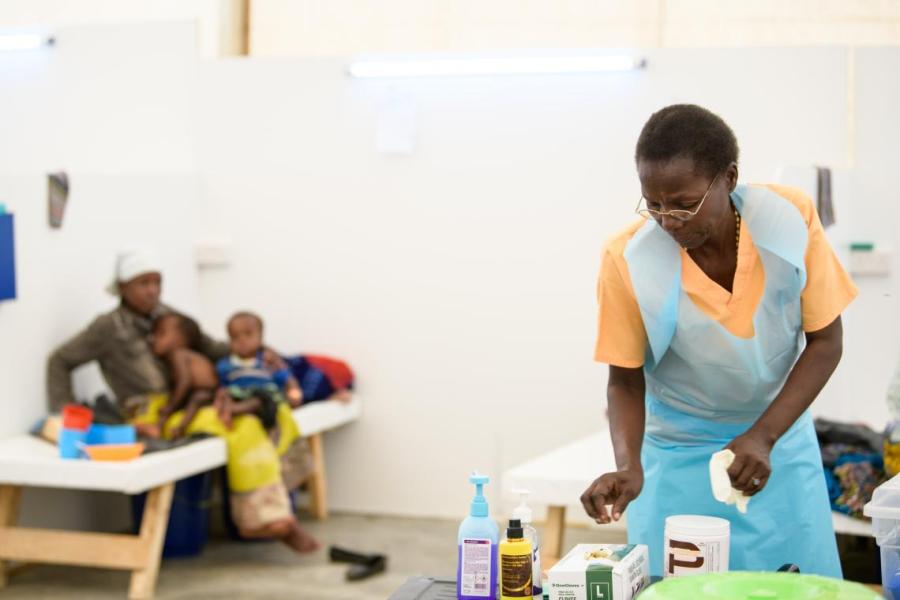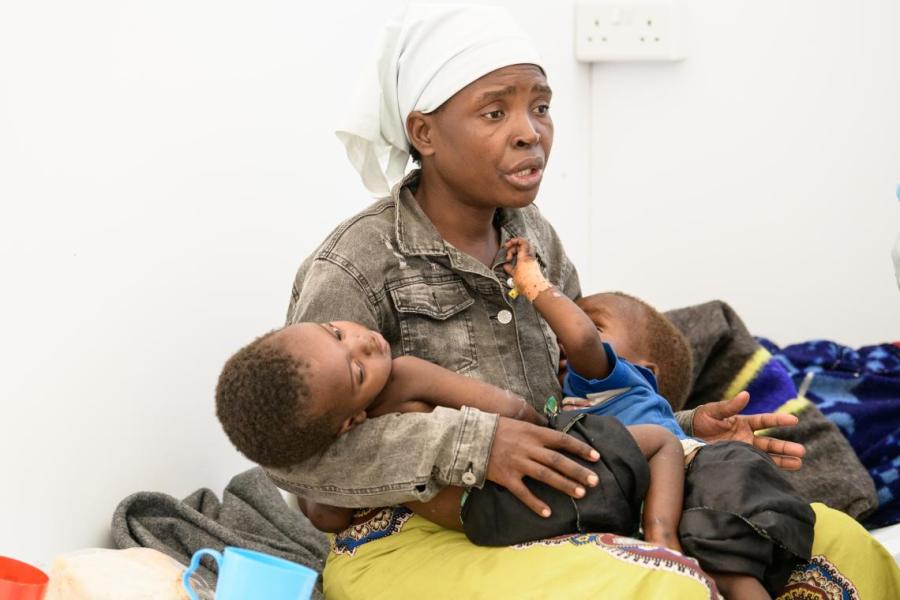An Outbreak in the Midst of an Emergency

The cyclone has stirred a surge in cholera cases in Blantyre just when the national disease burden is falling.
Malawi's worst cholera outbreak has left Penjani Chunda with little time to rest since its onset in March 2022.
Every day, the district environmental health officer in Blantyre receives reports, calls and visitors to refine strategies to make the fast-spreading disease history.
During the meeting, he was dispatching teams, medicine and essential supplies to cholera hotspots.
However, his job got harder when Cyclone Freddy struck southern Malawi, triggering severe landslides and flash floods that displaced thousands, with more than 100 people confirmed dead and about 30 missing in Blantyre.
Animated by early warnings from the weather department, ambulance teams swiftly evacuated all cholera patients from health centres to an isolation zone at Queen Elizabeth Centre Hospital (QECH) to reduce the potential deaths, injuries and damages.
In the aftermath of the tragedy, the health workers focus switched from the raging outbreak that has claimed 1, 724 lives from about 56,876 confirmed cases in a year, to the influx of wounded patients and bodies from areas devastated by the cyclone.
"It was hectic and we had no time to adjust. We had to deal with two emergencies that are not only related but also devastating on the community where we work," says Chunda.
The country's deadliest natural disaster exerted immense pressure on the healthcare system already grappling with a high disease burden, including the polio resurgence, the Covid-19 pandemic and the raging cholera emergency that followed Tropical Storm Ana, which affected nearly a million people nationwide.
"It wasn't easy to deal with the double blow, but teamwork always wins," says Chunda, who coordinates disease surveillance, prevention and control in all 37 health centres in Blantyre, which has been hit the hardest by both cholera and the world's longest-running cyclone, Freddy.
He marshalled the emergency transfer of cholera patients to the facility that housed Covid-19 patients during the coronavirus disease's second wave in 2020.

Maria Malele a community nurse prepares to assess malnutrition on one-year-old Obadia Andrea
Chunda explains: "The cyclone affected the cholera response, including treatment units that were pulled down once the patients had been evacuated to QECH, where we already had a camp fit for the purpose. Despite the horrifying disaster, no camp fell on a patient," he explains.
The cyclone has stirred a surge in cholera cases in Blantyre just when the national disease burden is falling.
Daily updates by the Ministry of Health show Blantyre’s count has surged to 45 from 20 to 30 before the storm.
"The numbers are rising sharply due to a breakdown in access to safe water, sanitation and hygiene at a time we expected the double-digit counts to fall below 10," he says.
Due to the disruptive disaster, Chunda preventive health teams suspended a nationwide campaign to vaccinate people against cholera and Covid-19 in communities where they live and work.
"To us, the surge is a cause of worry. We expect a worse outbreak since the cyclone destroyed water and sanitation facilities in its way. This is a double blow because it is happening amid a cholera outbreak sparked by last year's cyclones. With the current cyclone, our neighbours in Mozambique, who were also hit hard, have also been affected by cholera," he explains.
The affected population requires soap for hand-washing, buckets for water storage, chlorine for water treatment and public awareness, especially on preventive measures.
"We need urgent support to protect the devastated communities and remind them of the importance of insisting on safe water, sanitation and hygiene," he says.
The Ministry of Health has deployed community health workers to all emergency evacuation camps to conduct health talks and chlorination in a desperate effort to avert the potential cholera eruption among more than 350 000 people displaced by the cyclone.
Camps in Blantyre have six confirmed cholera patients within two weeks. These include three recorded at Mpingwe camp, two at Manja and one at Mbayani.
"The good news is that the spread has been kept under control, but this confirms our fears that poor sanitation and hygiene could turn the overcrowded camps into super spreaders of cholera," Chunda warns.

Equally worried is community nurse Maria Malele, one of the health workers who worked day and night to save the lives of cholera patients amid the humanitarian crisis caused by Cyclone Freddy. Her work in the 43-bed cholera treatment site at QECH just got harder with the new arrivals from the city's hotspots, including devastated zones and congested camps.
"Our workload in the cholera treatment centre increased dramatically with the cyclone. Few hands had to care for an increasing number of patients as many health workers turned to assisting casualties from disaster zones.
"For the past two weeks, we have been knocking off late when there are many patients. Ours is a calling, so we cannot live with patients because it is time to clock out," she explains.
Malele's daily workload can only get bigger unless the resurgent cholera wave is kept in check.
"Since the devastating cyclone, cholera patients are increasing because thousands of survivors are living in crowded camps with limited access to safe water, hygiene and sanitation. With dry taps in many areas, most households depend on unprotected sources contaminated by waste from shattered latrines and settlements," she explains.
Mariam Andrea was taken ill by cholera. After spending five days at the main cholera treatment camp amid the battering cyclone, she returned to the facility when her two sets of twins contracted the fast-spreading, sanitation-related bacterial disease.
Written by




